Send us a Message
- Destinations
- Tours
- By Destinations
- By Themes
- Suggested Combination
- Duration
- About Us
- Reviews
A UNESCO World Heritage site, Ha Long Bay is one of Vietnam’s most iconic landscapes, famed for its emerald waters and thousands of limestone islands rising dramatically from the sea. Whether by cruise or kayak, exploring the bay reveals hidden caves, floating villages, and serene lagoons. The breathtaking scenery and tranquil atmosphere make Ha Long a highlight of any trip to Vietnam.
Cruise through limestone karsts
A boat cruise is the best way to admire Ha Long’s majestic limestone formations. As you glide across calm waters, the islands appear like a mystical seascape straight out of a legend. Overnight cruises offer the chance to witness both sunrise and sunset, making the experience even more memorable.
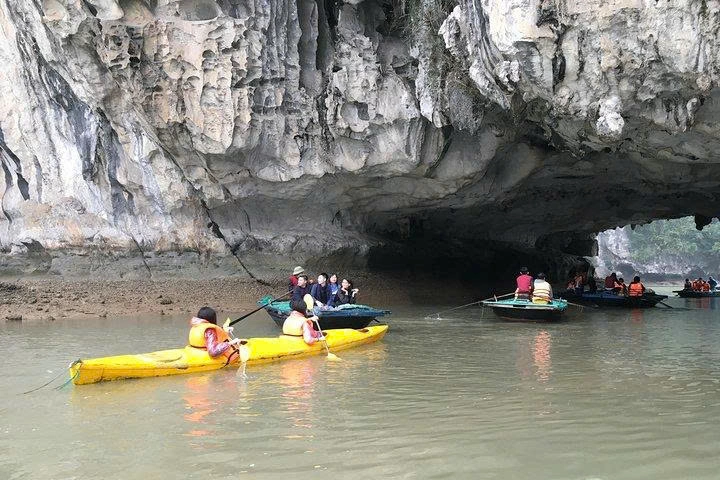
Kayak into hidden lagoons and caves
For a closer look, kayaking lets you paddle through narrow passages into secluded lagoons and caves. It’s a peaceful way to immerse yourself in nature and discover corners of the bay unreachable by larger boats. Along the way, you might spot monkeys on the cliffs or colorful fish beneath your kayak.
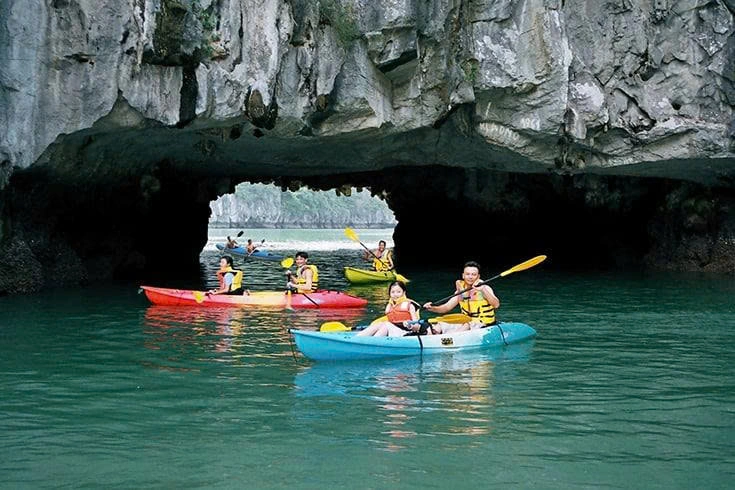
Visit floating fishing villages
Scattered across the bay are floating communities where families have lived for generations. Visiting these villages gives insight into a unique lifestyle built entirely on water. You can meet locals, see floating schools and fish farms, and learn how the community thrives in harmony with the sea.
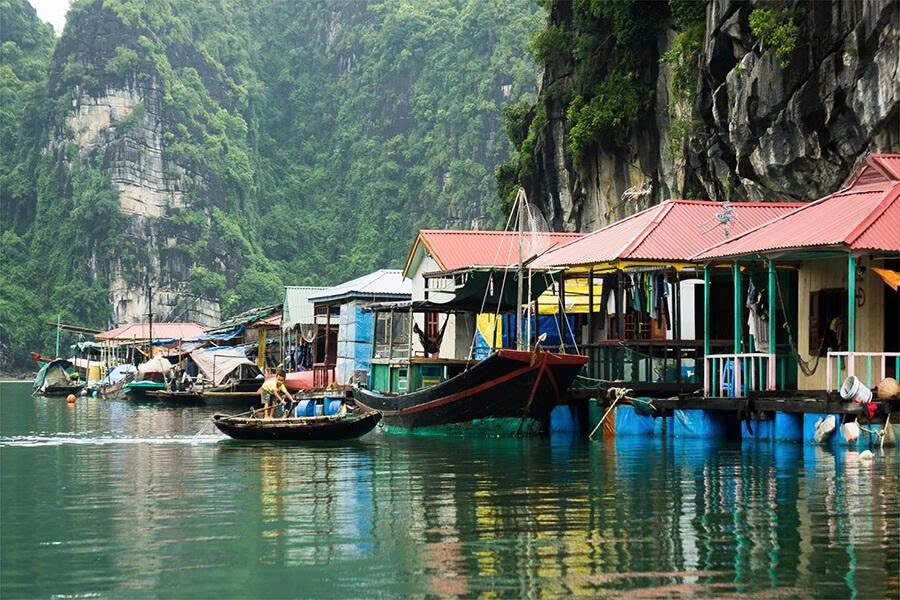
Explore Sung Sot (Surprise) Cave
One of Ha Long’s largest and most impressive caves, Sung Sot lives up to its name with vast chambers filled with stalactites and stalagmites. Walking through its illuminated pathways feels like stepping into an underground palace. The viewpoint at the cave’s exit also offers stunning panoramic views of the bay.
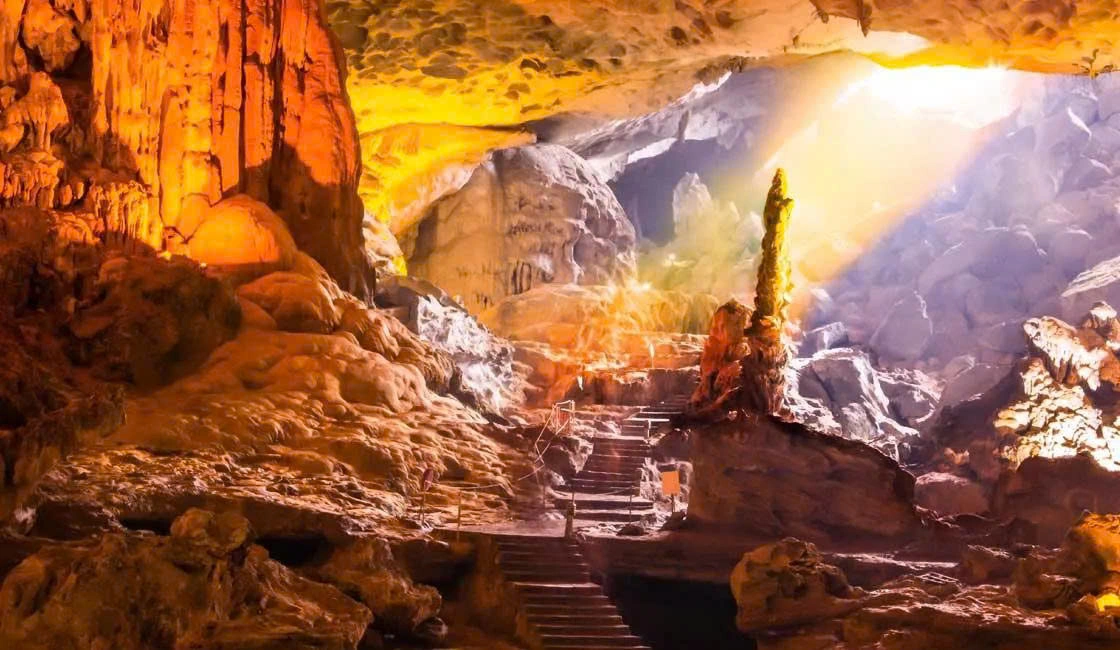
Relax on Ti Top Island’s beach and viewpoint
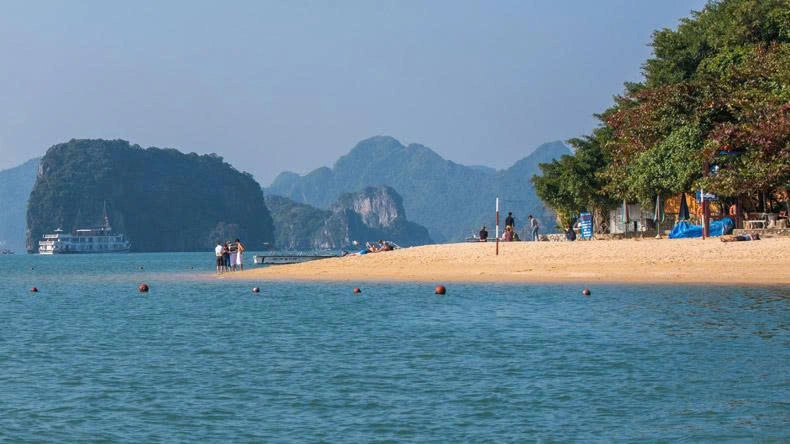
For a blend of relaxation and adventure, Ti Top Island is a perfect stop. Its sandy beach invites a refreshing swim, while a short hike up the hill rewards you with one of the most iconic views of Ha Long Bay. It’s an ideal spot to end a day of exploration.
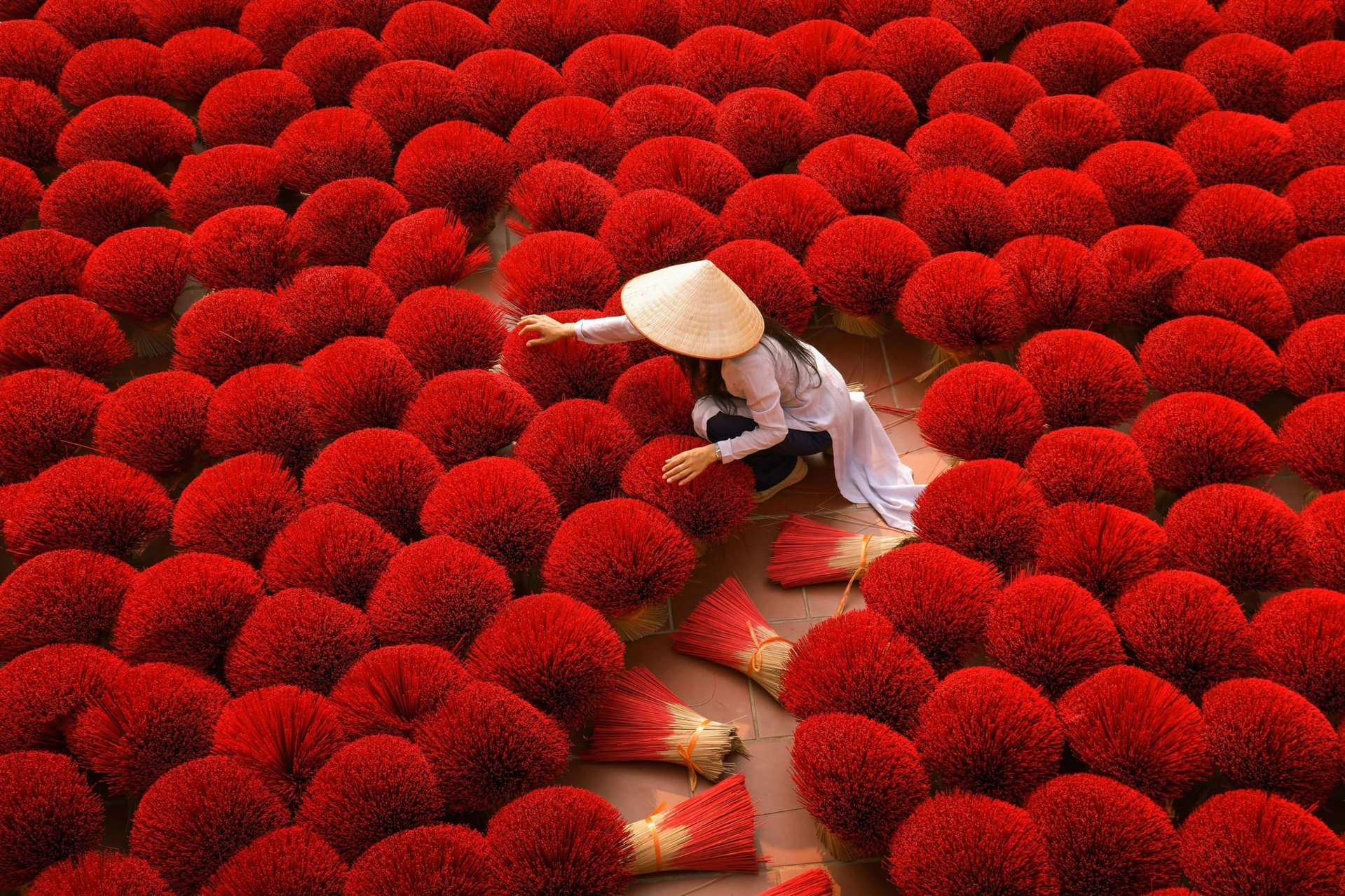
Vietnam is a country full of history, culture, and natural beauty, offering unforgettable experiences for every type of traveler. From bustling cities and ancient temples to serene countryside and pristine beaches, there is something for everyone. With careful planning, attention to local customs, and consideration for dietary or religious needs, Israeli travelers can enjoy a safe, enriching, and memorable journey.
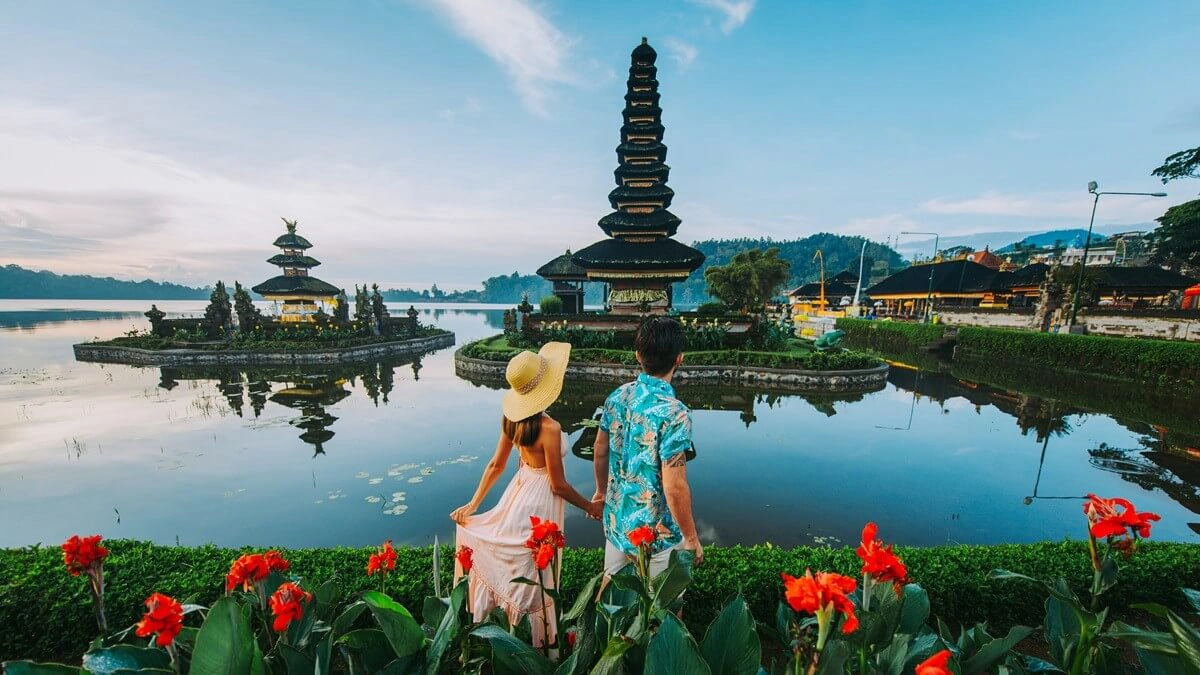
To enter Bali, travelers need a passport valid for 6 months; many nationalities get 30 days visa-free, while longer stays require a Visa on Arrival or e-visa. The island has a tropical climate with a dry season (Apr–Oct) ideal for beaches and festivals, and a wet season (Nov–Mar) with lush green landscapes. Cash in Indonesian Rupiah is essential for small expenses, though cards are accepted in larger venues, and transport mainly relies on taxis, ride-hailing apps, scooters, or private drivers. Visitors should respect local customs—dress modestly at temples, remove shoes in sacred spaces, and use the right hand when giving or receiving items.

Balinese cuisine is a vibrant reflection of the island’s culture, shaped by its Hindu heritage, fertile volcanic soils, and abundant spices. Meals are a harmonious balance of flavors spicy, savory, sweet, and aromatic—brought together through fresh herbs, coconut, peanuts, and chili-based spice pastes known as bumbu. Rice is the centerpiece of most meals, complemented by grilled meats, seafood, and an array of vegetable dishes. Many recipes are deeply rooted in ceremonial traditions, often served during temple festivals and family gatherings, making Balinese food not only a culinary delight but also a cultural journey.
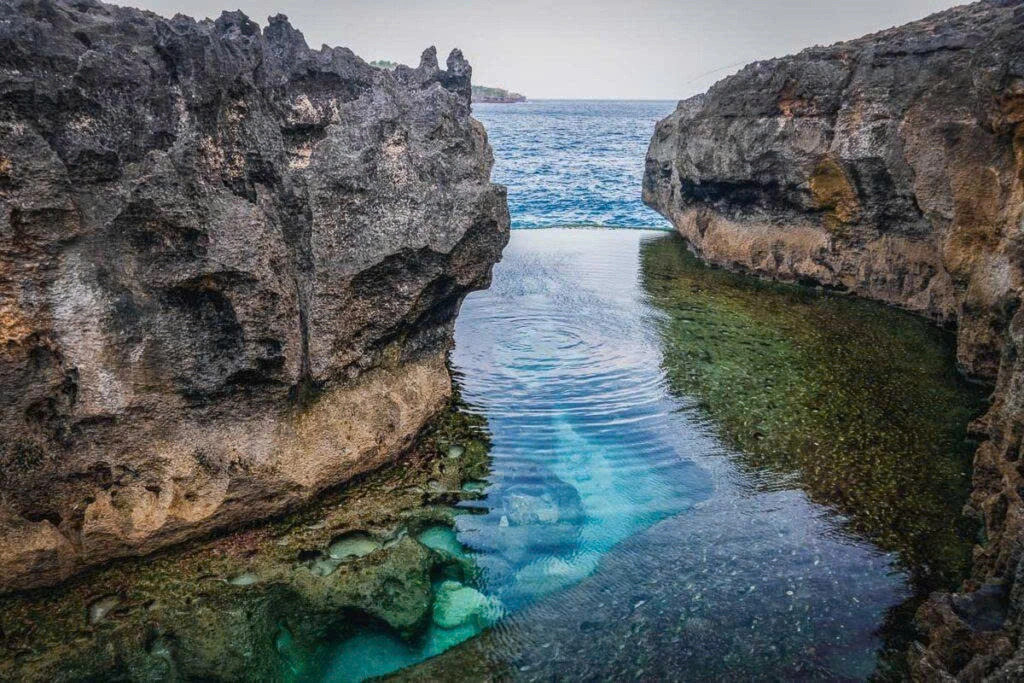
Nusa Penida is a stunning island off Bali’s southeast coast, famed for its rugged cliffs, crystal-clear waters, and dramatic landscapes. Highlights include Kelingking Beach with its dinosaur-shaped headland, Angel’s Billabong, and Broken Beach. Popular for snorkeling and diving, the island offers encounters with manta rays and vibrant coral reefs, making it a paradise for adventure and nature lovers.
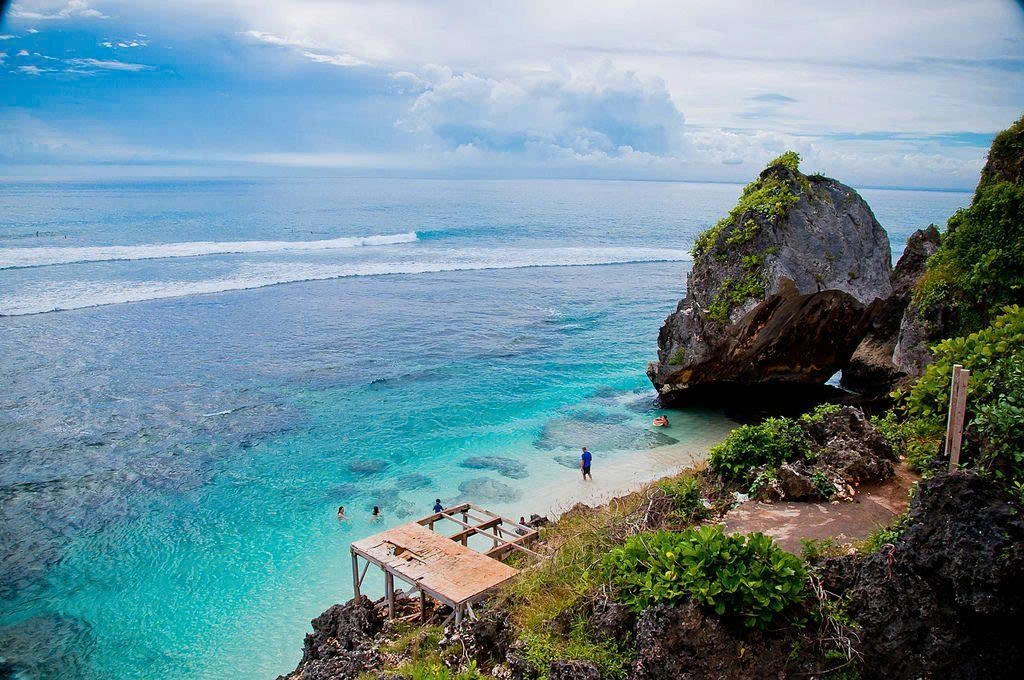
Uluwatu is renowned for its dramatic sea cliffs, world-class surf breaks, and breathtaking ocean views. At its heart lies the iconic Uluwatu Temple, perched high above the waves and famous for sunset Kecak dance performances. With luxury resorts, hidden beaches, and a relaxed coastal vibe, Uluwatu is a perfect blend of culture, adventure, and natural beauty.
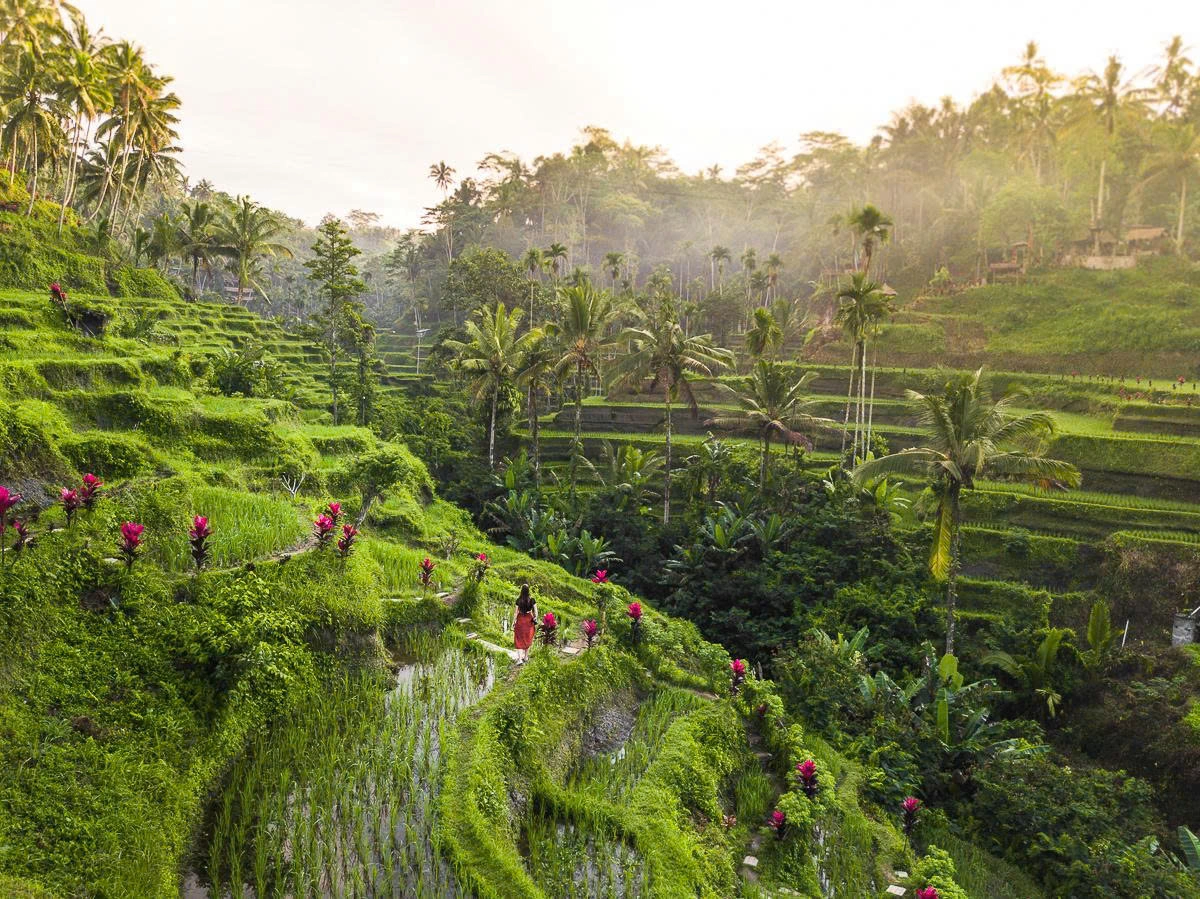
Ubud is the cultural and spiritual heart of Bali, surrounded by rice terraces, lush forests, and traditional villages. Known for its art, dance, and handicrafts, it’s also a hub for yoga, wellness, and spiritual retreats. With its temples, galleries, and serene landscapes, Ubud offers a deeper connection to Balinese heritage and nature.
Preparing for your upcoming trip to Asia?
Let us know what we can arrange for you!